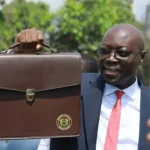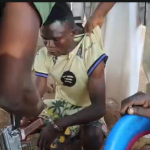The UN General Assembly has approved a resolution condemning human rights abuses against Muslim Rohingya and other minorities in Myanmar.
The resolution also calls on Myanmar to stop the incitement of hatred against the Rohingya and other minorities.
Thousands of Rohingya were killed and more than 700,000 fled to neighbouring Bangladesh during an army crackdown in the Buddhist-majority country in 2017.
Myanmar (formerly Burma) insists it was tackling an extremist threat.
Earlier this month, the country’s leader Aung San Suu Kyi rejected allegations of genocide at the UN International Court of Justice (ICJ).
The UN resolution passed on Friday expressed alarm at the continuing influx of Rohingya to Bangladesh over the past four decades “in the aftermath of atrocities committed by the security and armed forces of Myanmar”.
It highlighted the findings of an independent international mission “of gross human rights violations and abuses suffered by Rohingya Muslims and other minorities” by Myanmar’s security forces, which the mission described as “the gravest crimes under international law”.
The resolution called on Myanmar to protect all groups and to ensure justice for all violations of human rights. It was passed by a total of 134 countries in the 193-member world body, with nine votes against and 28 abstaining.
UN General Assembly resolutions are not legally binding but can reflect world opinion.
The UN ambassador for Myanmar, Hau Do Suan, called the resolution “another classic example of double-standards [and] selective and discriminatory application of human rights norms”.
He said it was designed to exert “unwanted political pressure” on Myanmar and did not attempt to find a solution to “the complex situation in Rakhine state”.
The Gambia, a small Muslim-majority west African nation, brought the Rohingya case to the ICJ on behalf of dozens of other Muslim countries.
Addressing the court earlier this month, Nobel Peace Prize laureate Aung San Suu Kyi called the case against Myanmar “incomplete and incorrect”. She said troubles in Rakhine, where many Rohingya lived, went back centuries.
Ms Suu Kyi said the violence was an “internal armed conflict” triggered by Rohingya militant attacks on government security posts. She conceded that Myanmar’s military might have used disproportionate force at times, but said that if soldiers had committed war crimes “they will be prosecuted”.
What are the accusations?
At the start of 2017, there were a million Rohingya in Myanmar, most living in Rakhine state. Myanmar, a mainly Buddhist country, regards the Rohingya as illegal immigrants and denies them citizenship.
The Rohingya have long complained of persecution, and in 2017 Myanmar’s military – the Tatmadaw – launched a massive military operation in Rakhine.
According to The Gambia’s submission to the ICJ, the clearances were “intended to destroy the Rohingya as a group, in whole or in part”, via mass murder, rape and setting fire to their buildings “often with inhabitants locked inside”.
A UN fact-finding mission which investigated the allegations found such compelling evidence that it said the Burmese army must be investigated for genocide against Rohingya Muslims in Rakhine.
In August, a report accused Myanmar soldiers of “routinely and systematically employing rape, gang rape and other violent and forced sexual acts against women, girls, boys, men and transgender people”.
In May, seven Myanmar soldiers jailed for killing 10 Rohingya men and boys were released early from prison. Myanmar says its military operations targeted Rohingya militants, and the military has previously cleared itself of wrongdoing.
What is the current situation for the Rohingya?
Hundreds of thousands of Rohingya have fled Myanmar since the military operations began.
As of 30 September, there were 915,000 Rohingya refugees in camps in Bangladesh. Almost 80% arrived between August and December 2017, and in March this year, Bangladesh said it would accept no more.
In August, Bangladesh set up a voluntary return scheme – but not a single Rohingya person chose to go.
Bangladesh plans to relocate 100,000 refugees to Bhasan Char, a small island in the Bay of Bengal, but some 39 aid agencies and human rights groups have opposed the idea.
In September, the BBC’s Jonathan Head reported that police barracks, government buildings and refugee relocation camps had been built on the sites of former Rohingya villages in Myanmar.
















